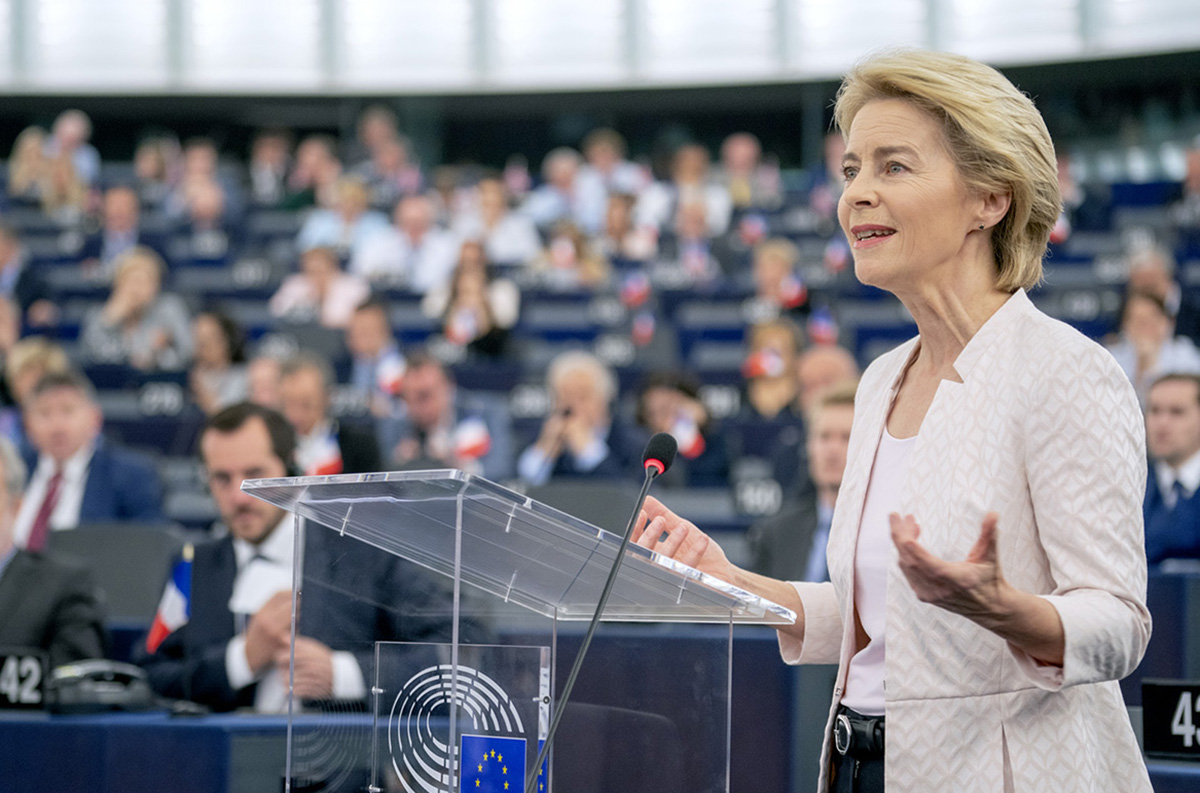Submitted by WA Contents
EC President Ursula von der Leyen announces plans for the "New European Bauhaus"
Belgium Architecture News - Oct 27, 2020 - 12:09 12214 views

The president of the European Commission Ursula von der Leyen has announced plans to create a "New European Bauhaus", embracing a circular economy and strengthening the EU’s actions for sustainability, environmental and social benefits in the architecture, urbanism, engineering, arts and design sector.
She announced plans in her inaugural speech to the European Parliament on October 14 and Von der Leyen outlined the details of a new project which is launched as a new cultural and sustainable movement, called "The New European Bauhaus".
The New European Bauhaus, released as part of the European Union's €750 billion coronavirus recovery plan, is aimed to create "a bridge between the world of science and technology and the world of art and culture."
The project takes its name from German art school founded by Walter Gropius in 1919 and operated until 1933, the school unified crafts and the fine arts aiming to combine the principles of mass production with an individual artistic vision.
"A new cultural project in the European Union"
"We will set up a new European Bauhaus – a co-creation space where architects, artists, students, engineers, designers work together to make that happen," said Ursula von der Leyen in her speech on September 16, 2020.
The Bauhaus was the most influential art school of the 20th Century. The project is launched as part of the €750 billion NextGenerationEU investment and recovery plans which were put in action after the coronavirus pandemic "to invest in the European Green Deal, in digitisation, in the modernisation of our Single Market, in resilience."
"I want NextGenerationEU to kickstart a European renovation wave and make our Union a leader in the circular economy."
"We need to give our systemic change with its own distinct aesthetic"
Von der Leyen described this initiative as a new cultural project that could lead a major systemic change with its "own aesthetic" and the new norms of sustainability.
"But this is not just an environmental or economic project: it needs to be a new cultural project for Europe. Every movement has its own look and feel. And we need to give our systemic change its own distinct aesthetic – to match style with sustainability," she said.
"It is about making systemic modernisation across our economy, society and industry. It is about building a stronger world to live in."
"Our current levels of consumption of raw materials, energy, water, food and land use are not sustainable. We need to change how we treat nature, how we produce and consume, live and work, eat and heat, travel and transport," Von der Leyen continued.
"So we will tackle everything from hazardous chemicals to deforestation to pollution. This is a plan for a true recovery. It is an investment plan for Europe."
"I want NextGenerationEU to create new European Hydrogen Valleys"
Von der Leyen also drew attention to the impacts of construction sector in our cities and highlighted the importance of organic materials and the use of smart technologies that could be a driving force of this change.
"I want NextGenerationEU to create new European Hydrogen Valleys to modernise our industries, power our vehicles and bring new life to rural areas," she said.
"Our buildings generate 40% of our emissions. They need to become less wasteful, less expensive and more sustainable."
"And we know that the construction sector can even be turned from a carbon source into a carbon sink, if organic building materials like wood and smart technologies like AI are applied."
She also added that the European Commission aims to reduce greenhouse emissions at least 55 per cent by 2030.
"NextGenerationEU should invest in lighthouse European projects with the biggest impact: hydrogen, renovation and 1 million electric charging points," she added.
Von der Leyen also shared one of the recent actions and said: "Two weeks ago in Sweden, a unique fossil-free steel pilot began test operations. It will replace coal with hydrogen to produce clean steel."
"This shows the potential of hydrogen to support our industry with a new, clean, licence to operate."
Von der Leyen said that they will spend 37 per cent of NextGenerationEU's 750 billion euro directly on their European Green Deal objectives and they have set a target of using 30% of NextGenerationEU's 750 billion euro to be spent on climate-related projects.
The Bauhaus was the most influential modernist art school
The Bauhaus (known as The Staatliches Bauhaus which literally means "building house" in German) was founded German architect by Walter Gropius in Weimar in 1919. The school, combining crafts and the fine arts, operated until the Nazi pressure 1933.
Becoming one of the most influential design movements in modern design, art, architecture and architectural education, the school was directed by Mies van der Rohe from 1930 to 1933, alongside Walter Gropius and Hannes Meyer, Marcel Breuer, Marianne Brandt, Paul Klee and Wassily Kandinsky are among the names at the school.
Top image: Ursula von der Leyen © European Parliament
> via European Commission
